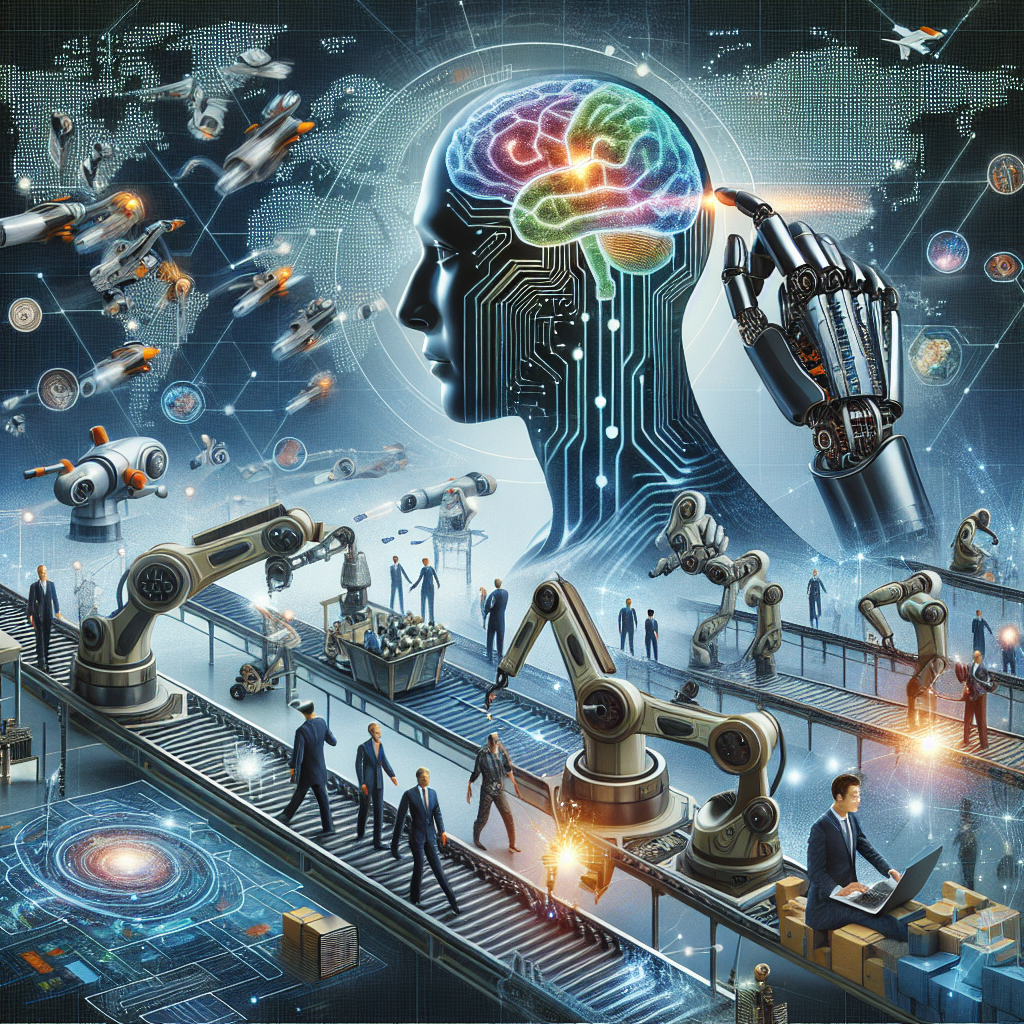Artificial General Intelligence (AGI) is a form of artificial intelligence that is capable of performing any intellectual task that a human being can do. Unlike narrow AI, which is designed for specific tasks, AGI is able to learn and adapt to new situations, solve complex problems, and think creatively. AGI has the potential to transform industries and revolutionize the workforce in ways that were previously unimaginable.
AGI has the potential to revolutionize industries by automating tasks that were previously thought to be impossible for machines to perform. This could lead to increased efficiency, lower costs, and improved productivity. For example, in the healthcare industry, AGI could be used to analyze medical images, diagnose diseases, and develop treatment plans. In the finance industry, AGI could be used to predict market trends, analyze investment opportunities, and manage risk.
AGI also has the potential to revolutionize the workforce by changing the nature of work and the skills that are required to succeed in the job market. As AGI becomes more advanced, it will be able to perform a wider range of tasks, leading to the automation of many jobs that are currently performed by humans. This could lead to job displacement and the need for workers to acquire new skills in order to remain competitive in the workforce.
Despite the potential benefits of AGI, there are also concerns about the impact that it could have on society. One of the main concerns is the potential for job displacement, as AGI could automate many jobs that are currently performed by humans. This could lead to widespread unemployment and economic instability. There are also concerns about the ethical implications of AGI, as the technology could be used to manipulate or control people in ways that are harmful or unethical.
In order to address these concerns, it is important for policymakers, businesses, and researchers to work together to develop regulations and guidelines for the ethical use of AGI. This could include measures to ensure that AGI is used in a way that benefits society as a whole, rather than a small group of individuals or companies. It is also important for workers to acquire new skills and adapt to the changing job market in order to remain competitive in the workforce.
Overall, AGI has the potential to transform industries and revolutionize the workforce in ways that were previously unimaginable. While there are concerns about the impact that AGI could have on society, there are also opportunities for innovation and progress. By working together to address these concerns and develop regulations for the ethical use of AGI, we can ensure that this technology benefits society as a whole.
FAQs:
Q: What is AGI?
A: AGI is a form of artificial intelligence that is capable of performing any intellectual task that a human being can do. Unlike narrow AI, which is designed for specific tasks, AGI is able to learn and adapt to new situations, solve complex problems, and think creatively.
Q: How is AGI different from narrow AI?
A: Narrow AI is designed for specific tasks, while AGI is capable of performing any intellectual task that a human can do. Narrow AI is limited in its scope and capabilities, while AGI has the potential to learn and adapt to new situations.
Q: What are the potential benefits of AGI?
A: AGI has the potential to revolutionize industries by automating tasks that were previously thought to be impossible for machines to perform. This could lead to increased efficiency, lower costs, and improved productivity. AGI also has the potential to revolutionize the workforce by changing the nature of work and the skills that are required to succeed in the job market.
Q: What are the concerns about AGI?
A: There are concerns about job displacement, ethical implications, and the potential for AGI to be used to manipulate or control people in harmful ways. It is important for policymakers, businesses, and researchers to work together to develop regulations and guidelines for the ethical use of AGI.

